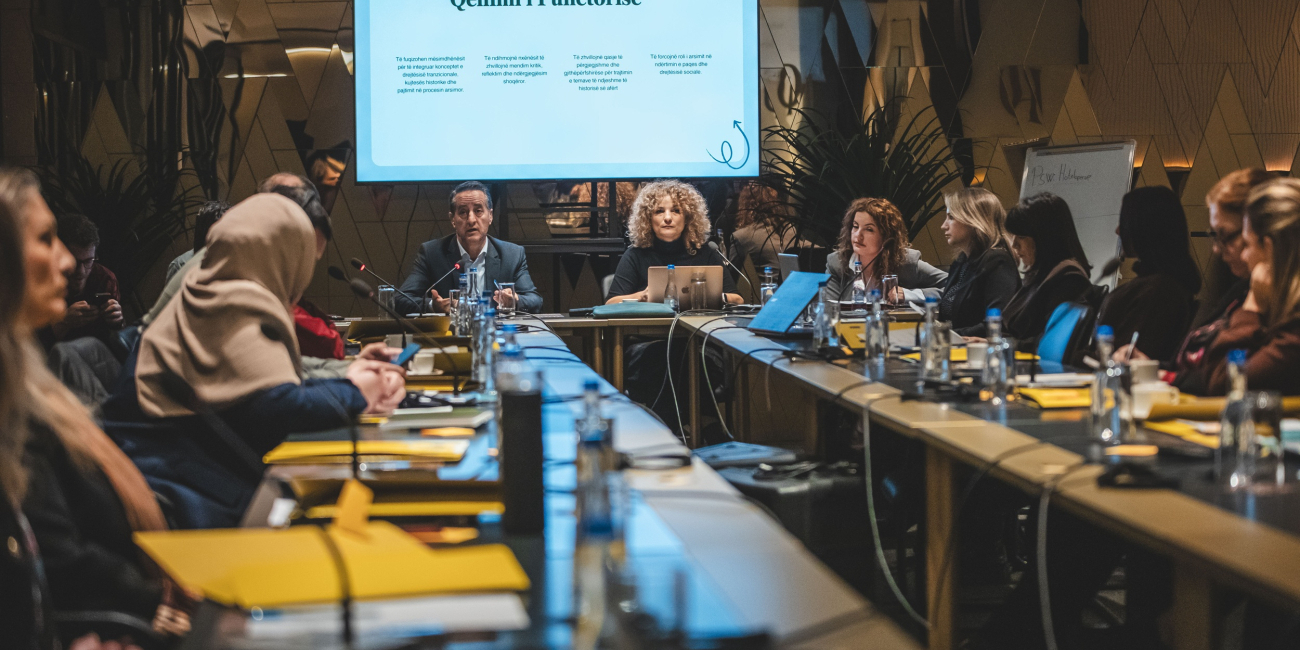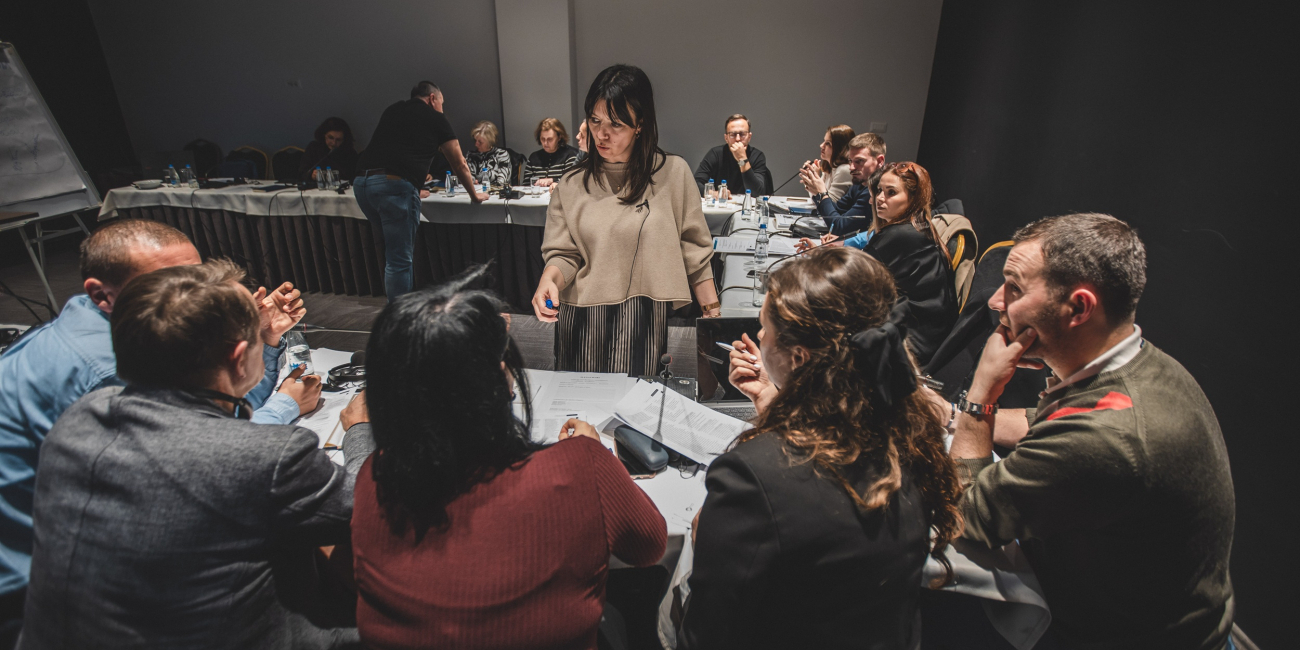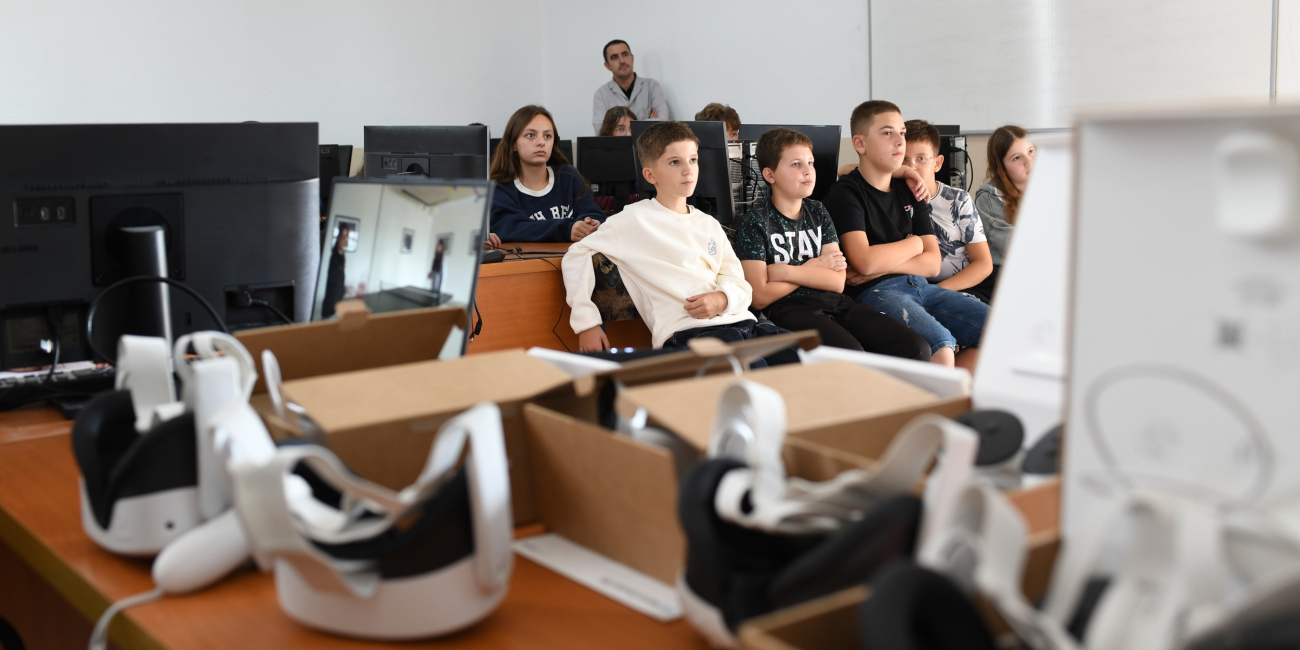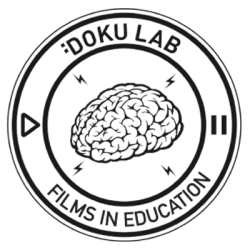DokuFest, in collaboration with the Humanitarian Law Center Kosovo, successfully conducted a series of teacher training workshops within the project…
Për qasje të plotë në Bibliotekën Digjitale ju duhet llogari aktive në DokuLab
MEDIA & INFORMATION LITERACY
A training program on integrating Media and Information Literacy for High School Teachers who use audiovisual tools in classroom. The project was developed in partnership with OSCE Mission in Kosovo, financed by the Norwegian Embassy in Kosovo, which is a part of the “Schools and Documentaries” program supported by Prince Claus Fund.
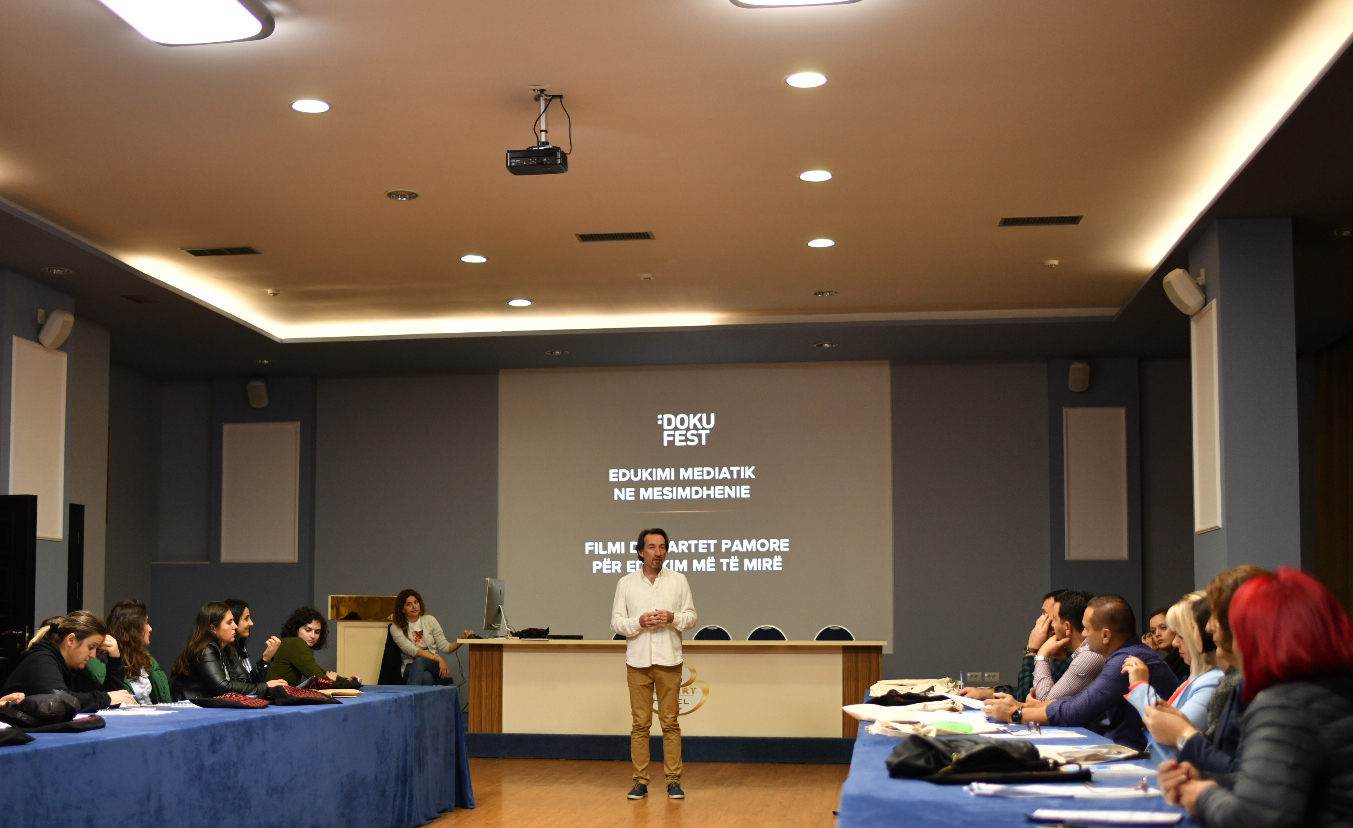 The Training kicked-off with the presentation of DokuFest’s training modules and methodology of using documentary film and visual arts in classroom in conjunction with traditional methods to develop critical and analytical thinking. The training program was introduced by the Head of DokuLab department Eroll Bilibani.
The Training kicked-off with the presentation of DokuFest’s training modules and methodology of using documentary film and visual arts in classroom in conjunction with traditional methods to develop critical and analytical thinking. The training program was introduced by the Head of DokuLab department Eroll Bilibani.
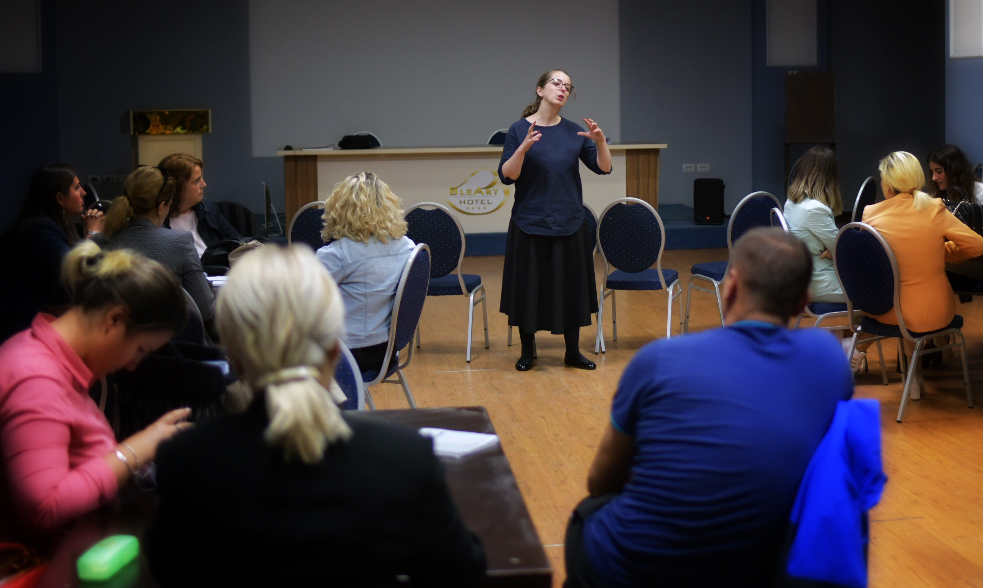 Prof. Ass. Dr. Zamira Hyseni Duraku, from the Department of Psychology, University of Prishtina facilitated the workshop and guided the participants throughout the four-day workshop. She focused on overall advantages and challenges in use of film in classroom for improved learning and advanced pedagogical approach.
Our long term collaborator and beneficiary from previous projects Ms. Merita Shala demonstrated a practical example of methodological approach in aligning the content of a Documentary Film with National Curricular Framework by developing a Film Guide for use in Classroom.
Prof. Ass. Dr. Zamira Hyseni Duraku, from the Department of Psychology, University of Prishtina facilitated the workshop and guided the participants throughout the four-day workshop. She focused on overall advantages and challenges in use of film in classroom for improved learning and advanced pedagogical approach.
Our long term collaborator and beneficiary from previous projects Ms. Merita Shala demonstrated a practical example of methodological approach in aligning the content of a Documentary Film with National Curricular Framework by developing a Film Guide for use in Classroom.
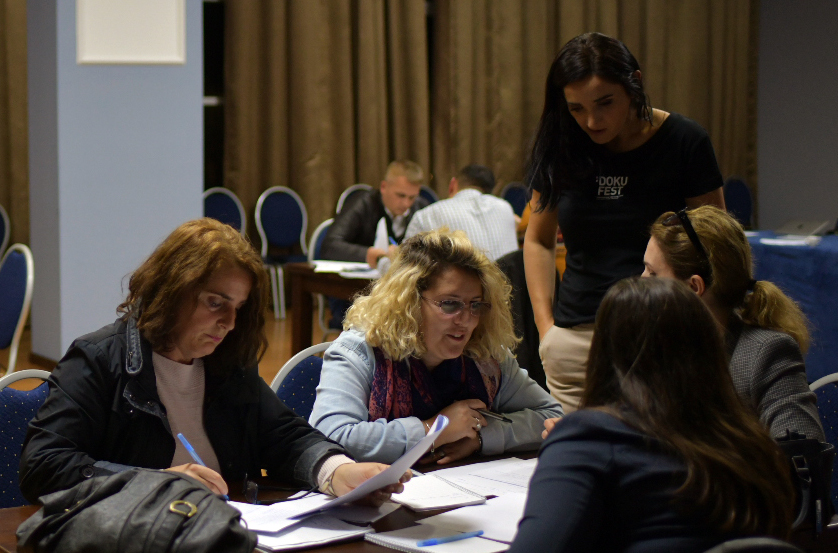 Prof. Kaltrina Kelmendi from University of Prishtina highlighted the importance of media and its impact on everyday functioning, with a specific emphasis on the importance of incorporating media in education, specifically in terms of evaluation activities and research. The first part of the session was mainly focused on the definition of media, through a short discussion on how we define media and how media has become an unavoidable part of our lives. Besides, in this section presentation of worldwide data in usage of media among adolescents was provided (see: Teens, Social Media & Technology 2018), but also the findings from the latest study on online security of children in Kosovo conducted in 2014 were also presented (see: Siguria e fëmijëve në internet). Specifically, the presentation of these findings aimed to raise discussion about wide-spread usage of technology and internet among adolescents and parents and to analyze how this knowledge could contribute to usage of technology on education.
Prof. Kaltrina Kelmendi from University of Prishtina highlighted the importance of media and its impact on everyday functioning, with a specific emphasis on the importance of incorporating media in education, specifically in terms of evaluation activities and research. The first part of the session was mainly focused on the definition of media, through a short discussion on how we define media and how media has become an unavoidable part of our lives. Besides, in this section presentation of worldwide data in usage of media among adolescents was provided (see: Teens, Social Media & Technology 2018), but also the findings from the latest study on online security of children in Kosovo conducted in 2014 were also presented (see: Siguria e fëmijëve në internet). Specifically, the presentation of these findings aimed to raise discussion about wide-spread usage of technology and internet among adolescents and parents and to analyze how this knowledge could contribute to usage of technology on education.
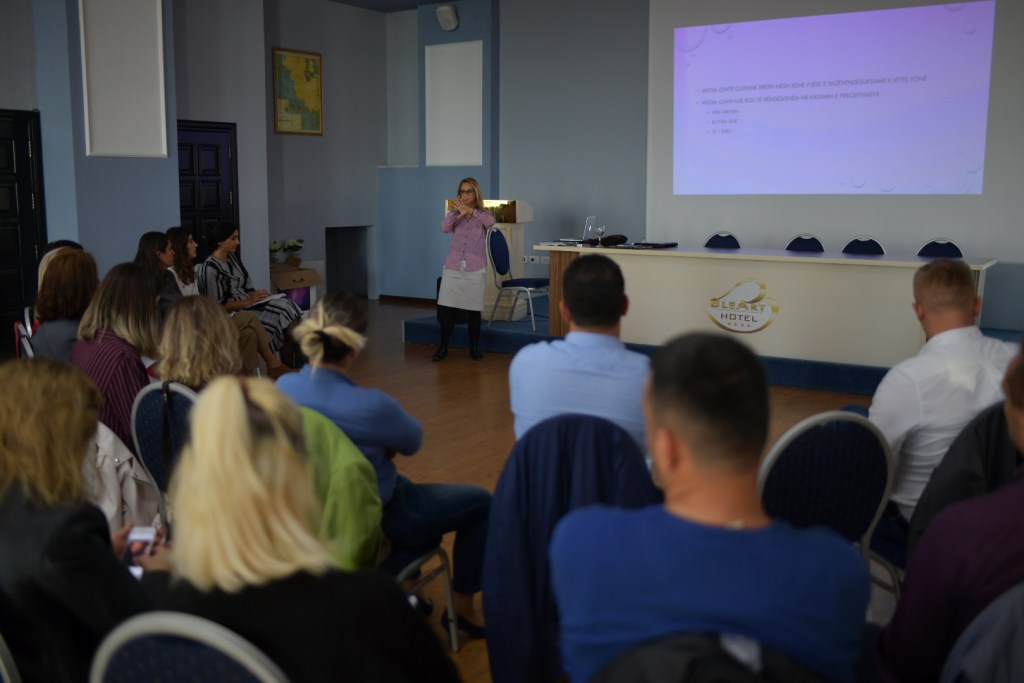 Participants had an opportunity to hear from Prof. Lindita Tahiri on the effect of Media in Teaching and Studying, as lectured in the Faculty of Journalism, followed by a presentation from renowned Kosovar activist Agon Maliqi on modern day propaganda and its impact on society.
Participants had an opportunity to hear from Prof. Lindita Tahiri on the effect of Media in Teaching and Studying, as lectured in the Faculty of Journalism, followed by a presentation from renowned Kosovar activist Agon Maliqi on modern day propaganda and its impact on society.
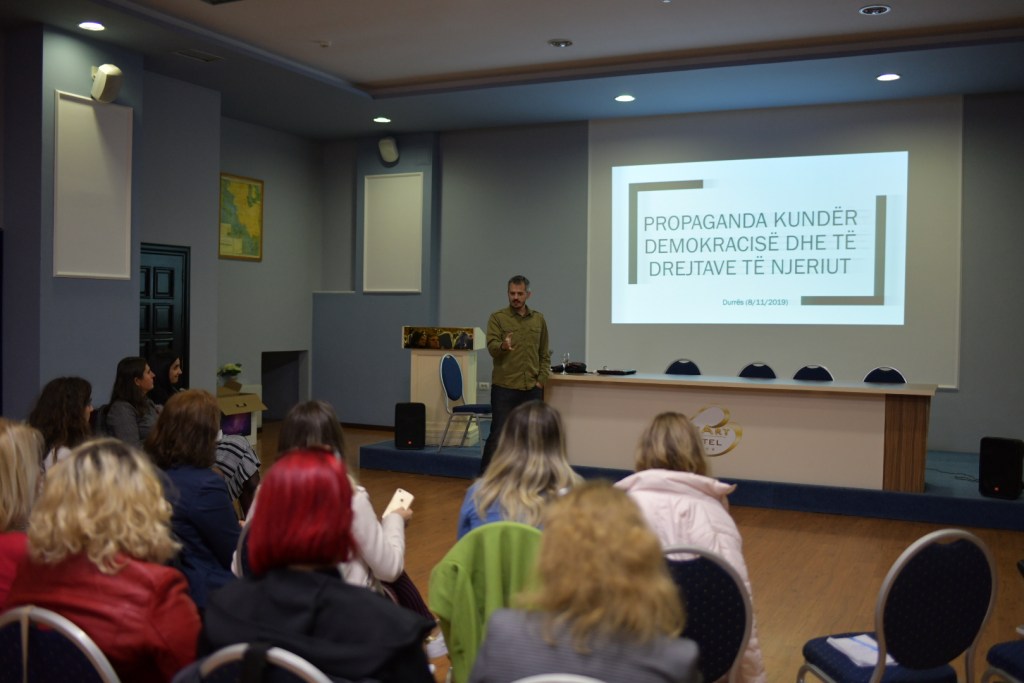 The workshop included practical exercises that were inspired by presentations of Tijana Bumbic from Journalist School of Novi Sad, Jeta Rexha from High School “Hajdar Dushi” in Gjakova and OSCE duo Kaltrina Hoxha and Biljana Nastovska. The practical use of this knowledge will be applied in the classrooms of the Schools in 2020.
The workshop included practical exercises that were inspired by presentations of Tijana Bumbic from Journalist School of Novi Sad, Jeta Rexha from High School “Hajdar Dushi” in Gjakova and OSCE duo Kaltrina Hoxha and Biljana Nastovska. The practical use of this knowledge will be applied in the classrooms of the Schools in 2020.






